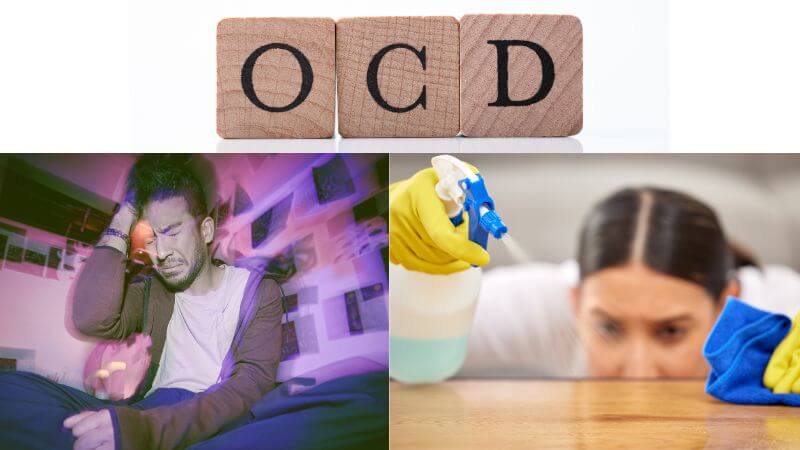Living with OCD—or even suspecting you might have it—can be a confusing experience. You may have intrusive thoughts, constant doubts, or rituals you can’t seem to stop doing. Is it just anxiety, or is it something more? In this article, we’re breaking down five important things you need to know about OCD symptoms, the different types of OCD, signs to watch out for, and how OCD medication can help manage it all.
Understanding OCD Symptoms
What Are the Common Symptoms of OCD?
Obsessive-Compulsive Disorder (OCD) is more than just being overly clean or double-checking things. The real OCD symptoms go much deeper. They typically involve obsessions—unwanted, recurring thoughts—and compulsions, which are behaviours performed to reduce the anxiety caused by those thoughts. You might feel the need to repeatedly wash your hands, check locks, or mentally count to a certain number to “neutralise” a bad thought. These actions aren’t done for pleasure, but to gain relief from the anxiety OCD creates.
How Symptoms of OCD Affect Daily Life
The symptoms of OCD can be exhausting. For some, the rituals take hours each day. For others, it’s the constant mental battle of fighting intrusive thoughts. Simple tasks like leaving the house, focusing on work, or even enjoying time with friends can become difficult. When left untreated, the symptoms of OCD can significantly affect your emotional well-being and quality of life. Source
Identifying the Early Signs of OCD
What Do the Early Signs of OCD Look Like?
Early signs of OCD often go unnoticed. It might start with small habits—like checking your phone multiple times to be sure a message sent correctly or needing things arranged in a particular order. Over time, these habits become more intense and harder to control. If you notice that these routines are interfering with your daily routine or making you anxious, it could be an early warning.
When Do OCD Symptoms Usually Start?
OCD can start at any age, but it most commonly begins in late childhood or early adulthood. However, many people only realise much later that what they’ve been experiencing are actually OCD symptoms. That’s why recognising the signs of OCD early on can make a big difference in getting help sooner.
The Many Types of OCD
Breaking Down the Different Types of OCD
There’s no one-size-fits-all version of OCD. Different types of OCD affect people in different ways. Common types include contamination OCD (fear of germs), checking OCD (constant need to verify things), symmetry OCD (everything must be just right), and intrusive thoughts OCD (disturbing thoughts you can’t control). Each type may involve different rituals or thought patterns, but all can be equally distressing.
Can You Have More Than One Type?
Absolutely. Many people with OCD experience more than one type of obsession or compulsion. For instance, someone might have both contamination fears and checking rituals. Understanding which types of OCD you experience can help tailor treatment options and identify specific OCD symptoms that need to be addressed. Source
How OCD Medication Can Help
What Role Does Medication Play in Treatment?
OCD medication can be a game changer. While therapy—especially Cognitive Behavioural Therapy (CBT)—is often the first line of treatment, medication helps manage the chemical imbalances that fuel obsessive thinking. SSRIs (Selective Serotonin Reuptake Inhibitors) are the most commonly prescribed OCD medication. They help regulate serotonin levels in the brain, reducing the intensity of obsessions and compulsions.
What to Expect When Starting OCD Medication
Like with any treatment, results may take time. You might not feel immediate relief from OCD symptoms when starting medication. It often takes a few weeks to notice changes. Some people may experience side effects, while others adjust quickly. It’s important to work closely with a mental health professional to find the right OCD medication and dosage for you.
Getting Help for OCD
When Should You Seek Professional Help?
If the signs of OCD are interfering with your life, affecting your relationships, or making everyday tasks difficult, it’s time to seek help. Many people delay treatment because they feel embarrassed or fear being judged. But OCD is a real and treatable mental health condition, not a personality flaw.
What Are the Options for Treatment?
In addition to OCD medication, therapy is highly effective. CBT, specifically a technique called Exposure and Response Prevention (ERP), is considered the gold standard. A mental health provider can guide you through identifying your specific OCD symptoms and developing strategies to manage them.
Summary!
Understanding OCD means recognising its symptoms, knowing the different types of OCD, being aware of the early signs of OCD, and exploring the treatment options available—including OCD medication. Whether you or someone you know is struggling, know that help is out there. Getting the right diagnosis and support can make a massive difference in leading a balanced, peaceful life.
Hope you found this article helpful!!
Also Read: 7 Simple Steps to Learn How to Meditate Properly
Tinydale is on YouTube, Click here to subscribe for the latest videos and updates.
Follow Us: Facebook | Instagram | Twitter | Youtube | Pinterest





